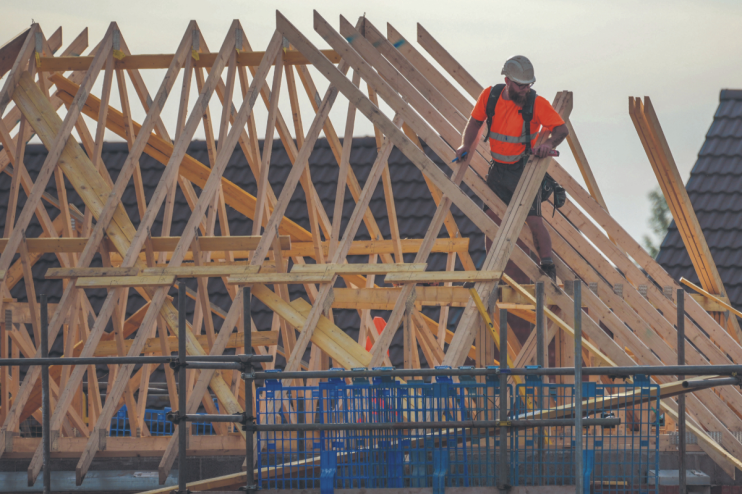Will the government’s £2bn affordable housing top-up make a difference?

The government has ploughed a ‘top-up’ investment of £2bn into the UK’s affordable housing sector as part of its pledge to revitalise residential construction.
Officials say it will get working people and families into secure homes, while detractors say it doesn’t go far enough and might even be less money than the sector had anticipated.
Critics say that the £2bn pledged is less than the previously-planned investment from the last government.
The last government promised £11.5bn for the Affordable House Programme (AHP) for 2021-2025, equal to £2.3bn per year.
But this is the third top up the Government has made to its affordable homes pot this year, having commited £500m in October and £350m in February.
The most recent announcement takes the total amount pledged for 2025/26 to £2.85bn.
It also precedes the government’s Spending Review on 11 June, which is set to feature details of a new, multi-year AHP to replace the existing scheme.
The next planned stage of funding will be for 2026/27.
‘Welcome and vital’
The UK’s housing crisis has a number of different causes. Having made inroads in addressing the planning problem with its Planning and Infrastructure Bill, this money will help to improve supply-side financial constraints.
“This additional funding is very much welcome and needed especially given the huge viability challenges many affordable housing developers are facing, which is stymying the delivery of much-needed new housing,” Olivia Harris, Chief Executive, Dolphin Living, said.
“This is especially so in places like London where start-on-sites are at near record lows while demand continues to accelerate away.”
Affordable housebuilding has suffered from a pullback of government funding, with government grants per housing unit falling from 16.5 per cent of total housing costs in 1979 to 11.5 per cent in 2019–2020, according to the Tony Blair institute.
Builders often struggle with a large viability gap, as they come up against the incompatible goals of building affordable homes and turning a profit.
Heather Powell, Head of Property at Blick Rothenberg, said: “Over 40% of affordable housing is delivered through S106 agreements. However, a lack of funding available to Social Housing providers means these many schemes are being held up as the developers cannot identify a operator who has the funds to purchase the affordable homes.”
Disclaimer: Investing carries risk. This is not financial advice. The above content should not be regarded as an offer, recommendation, or solicitation on acquiring or disposing of any financial products, any associated discussions, comments, or posts by author or other users should not be considered as such either. It is solely for general information purpose only, which does not consider your own investment objectives, financial situations or needs. TTM assumes no responsibility or warranty for the accuracy and completeness of the information, investors should do their own research and may seek professional advice before investing.
Most Discussed
- 1
- 2
- 3
- 4
- 5
- 6
- 7
- 8
- 9
- 10